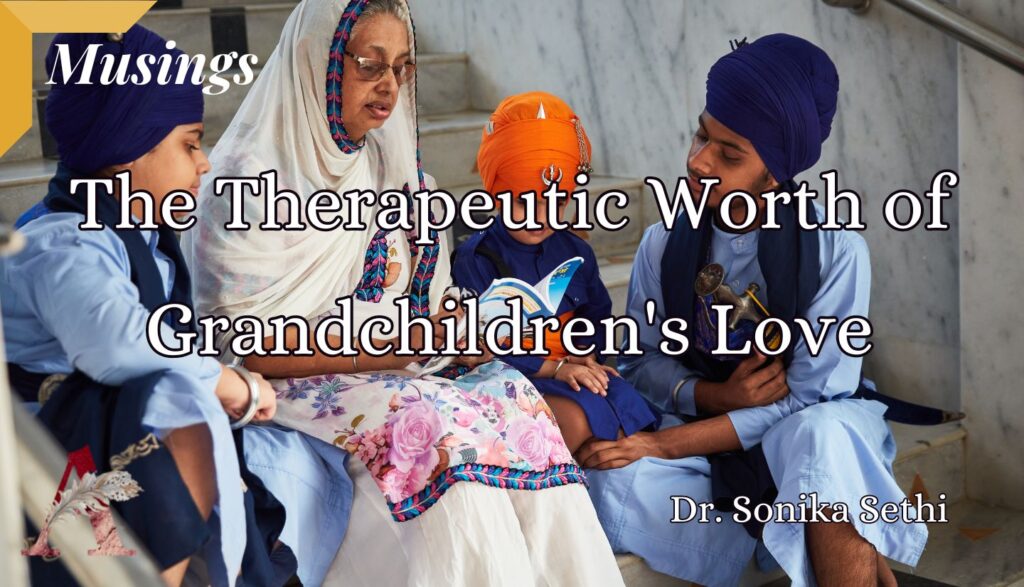
In today’s world where hectic lifestyle and metropolitan culture have wreaked havoc on society in general and families in particular, the children and elderly remain the worst sufferers. Individuality is the in-thing, and nuclear and small family is the new norm. In the midst of all this modernization, I, for one, am a stickler of the joint family system and firmly believe that if not most, at least half of the problems faced by the elderly and the children can be resolved by creating a formidable bond between the two.
The relationship between grandparents and grandchildren is a timeless and treasured bond that holds immense therapeutic worth for the elderly grandparents and serves as a powerful vessel for imparting values to the younger generation. Beyond its emotional significance, this intergenerational connection plays a pivotal role in the well-being of both parties, contributing to mental health, emotional resilience, and the transmission of life’s essential values.
As grandparents age, they often face a myriad of challenges, including loneliness, a sense of purposelessness, and even health issues. The presence of grandchildren in their lives can serve as a source of rejuvenation and purpose. The act of caring for, playing with, and simply spending time with their grandchildren provides elderly grandparents with a renewed sense of vitality and connection. This interaction combats feelings of isolation and can even improve physical health by encouraging them to stay active and engaged.
We were in Europe when we received the news that my mother-in-law had suffered a stroke and was hospitalised. The aftermath of the stroke affected the left side of her body, resulting in the paralysis of her left arm and leg as also slurring of speech. When we returned to India, a few days later, she was completely bed-ridden. In all the years, we had never seen her down with viral let alone something so serious. We were in tears seeing her in such a despondent state.
My elder daughter who simply dotes on her grandmother, lay down beside her and was inconsolable. She hugged her grandmother and said, “Dadi ab humare liye Rajma Chawal kaun banayega?”
It was the mid of June and her innocent request both melted and strengthened her incapacitated grandmother’s heart. “Don’t worry, my child. I’ll be alright by your Dad’s birthday, and I promise I’ll make Rajma Chawal for all of you on that day.”
My husband’s birthday falls on 31st July, and on this day, though she had not fully recovered, she propelled herself to the kitchen, sat on a chair and with some help from others, she prepared Rajma Chawal for all of us but most of all for her grandchildren. For close to two months, we ensured that no one cooked or ate Rajma Chawal, convincing her that the kids won’t eat the dish prepared by anyone else but her. Such is the therapeutic power of grandchildren’s love towards grandparents.
The bond between grandparents and grandchildren is not only therapeutic but also acts as a conduit for the transfer of values that are often deeply rooted in tradition and experience. Grandparents are custodians of family history, cultural heritage, and moral lessons which they impart through storytelling, shared activities, and meaningful conversations. This exchange of wisdom fosters a sense of continuity between generations and cultivates values such as respect, empathy, resilience, and gratitude.
Grandparents serve as living examples of the values they promote. The loving, nurturing environment they create for their grandchildren models compassion and caring. Through shared experiences like cooking traditional recipes, engaging in handicrafts, or even tending to a garden, grandchildren learn the importance of patience, perseverance, and the value of hard work.
Dr. Sonika Sethi

0 Comments